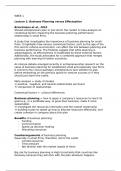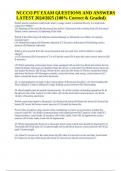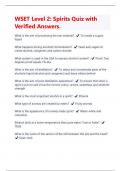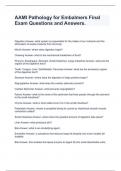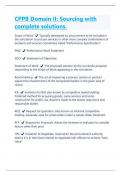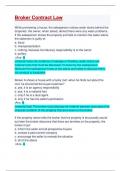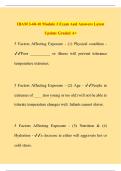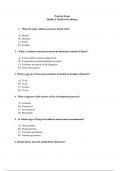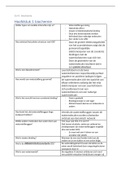Samenvatting
Summary Growth Strategies and Organizational Challenges VU BA
- Instelling
- Vrije Universiteit Amsterdam (VU)
Summary containing all the relevant theory during the course Growth Strategies and Organizational Challenges given in the first year of Business Administration (master) at the Vrije Universiteit Amsterdam. By learning this summary I personally passed the final exam.
[Meer zien]
